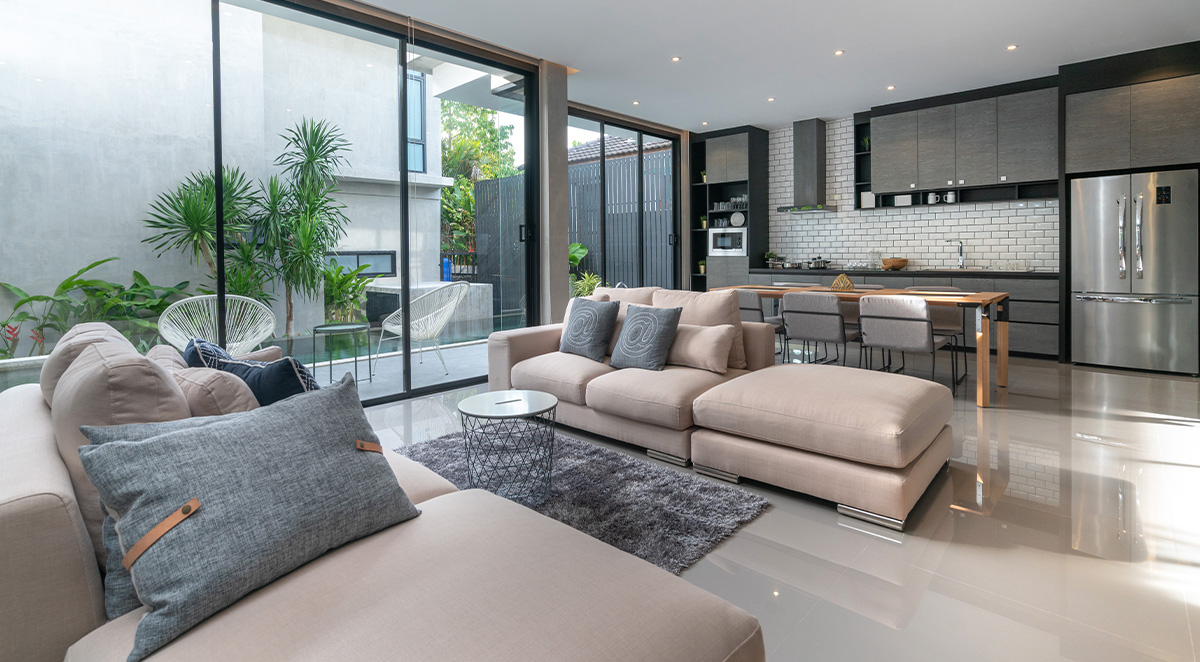Looking to buy a house in the most amazing part of North Carolina? Asheville is home to some of the most impressive historic homes, beautiful landscapes, and unique culture. There is no place quite like “The Land of the Sky.”
However, it can be extraordinarily intimidating if you are not accustomed to the local housing market. According to the US Census Bureau, the population of Asheville has increased by around 10.8 percent from 2008 through 2018. It is also predicted that the population will be hitting 500,000 by 2025. That is massive growth for what was once a small southern city.
Why Asheville?
It is pretty clear why people move to Asheville and the surrounding towns. For one, the vibrant downtown is home to so many new amazing shops and restaurants. There are also over fifty breweries to explore, from the classic Green Man Brewing to the funky Burial Beer Co.
If you are a lover of the outdoors, there is no shortage of things to do. Mountain bikers and nature lovers alike find themselves sharing the trails around Bent Creek Experimental Forest. Rock climbers can be found putting up routes at nearby Looking Glass in the Pisgah Ranger District. For those that just enjoy taking it easy, the Blue Ridge Parkway has some of the most beautiful vistas and easy hiking trails, all accessible from the road.
Regardless of who you are, Asheville, NC, has something for you. Honestly, that is why this city holds such a special place in many folks’ hearts and why the housing market is so competitive. However, if you are in the market to buy a house, you should be prepared for higher home prices and stiff competition.
We at Century 21 Connected have been selling homes in this area for years, and have the expertise to give you a chance at your dream home. This comprehensive guide will give you a look behind the scenes of the Asheville real estate market.
How Far Will a Dollar Get You in Asheville?
Asheville home prices can be a bit higher than what you would expect in just about any other mountain town in the southeast, with the median listing price sitting around $479k, according to redfin.com. This price has been trending up 6% year over year, with a -2.1% dip from last year. This median home price is $69,000 more than Charlotte’s and $64,000 more than Raleigh’s.
In addition to housing prices, it is important to take into consideration additional costs that you may incur by living in a home in Asheville. For one, most homes outside of downtown and some older homes are on a well and septic system. Also, due to its location near the mountains, certain neighborhoods are susceptible to the threat of wildfires. This threat can increase your homeowner’s insurance premium.
What Kinds of Homes Are in Asheville?
Asheville is an older city, and because of this, there are a variety of different architectural styles on display. For example, there are tons of charming bungalows throughout the classic Asheville neighborhoods. You can find these throughout west Asheville and Historic Montford.
East Asheville homes are typically late mid century rain-style homes. If you are looking for something a bit more affordable, you may be able to find a basementless ranch home for under $300,000. These are great first-time homes.
Across the mountain areas surrounding the city, there are newer and larger homes. These are typically made of wood and stone and are constructed to maximize mountain views. Sometimes you can find houses with larger acreage in these areas. However, as you move more into the mountain land realm, prices begin to skyrocket due to demand.
In downtown, there is a mix of luxury apartments and some single-family homes. Per usual, downtown housing comes at a premium. So be prepared to find one-bed, one-bath condominiums going for well over $450,000.
Some things to consider when looking at homes in the Asheville area are:
- Lack of Central AC: Many homes in the area are without central air. This is due to the fact that most homes are older and utilize outdated oil heating and electric baseboard heating.
- Smaller Home Size: There are not a lot of large new construction homes due to the local green/eco-friendly movement.
- Rental Properties: Much of the real estate market suits rental properties.
Asheville Neighborhoods
Asheville is home to a wide variety of diverse neighborhoods that make up the real estate landscape in Asheville. Whether you’re drawn to history, art, or natural beauty, there’s a neighborhood for you.
1. Biltmore Forest
Located just south of downtown Asheville, Biltmore Forest is an exclusive and prestigious neighborhood known for its luxurious homes and expansive estates. This neighborhood features stunning architecture, lush landscapes, and a tranquil atmosphere. Home to the famous Biltmore Estate, Biltmore Forest offers a combination of privacy, elegance, and natural beauty, making it highly sought after by affluent buyers.
2. Montford Historic District
Situated just north of downtown, the Montford Historic District is a charming neighborhood with a rich history. The area is renowned for its beautifully preserved Victorian and Arts and Crafts-style homes, many of which have been converted into bed and breakfasts or charming vacation rentals. Montford’s tree-lined streets, diverse architectural styles, and proximity to downtown make it an attractive choice for those seeking a blend of history and convenience.
3. West Asheville
Once an industrial area, west Asheville has transformed into a trendy and eclectic neighborhood that appeals to a younger and more alternative crowd. Known for its vibrant arts scene, quirky shops, and farm-to-table restaurants, west Asheville has experienced significant growth in recent years.
West Asheville offers a mix of housing options, including charming bungalows, mid-century homes, and new construction, making it popular among first-time homebuyers and artists.
4. Grove Park
Nestled in the northwest part of Asheville, Grove Park is an upscale neighborhood that exudes elegance and sophistication. Known for its stunning historic homes, many of which overlook the prestigious Grove Park Inn and Golf Course, this neighborhood offers a luxurious and tranquil living environment. The area also boasts beautiful tree-lined streets, well-maintained gardens, and easy access to downtown Asheville.
5. East End/Claxton
Located east of downtown, the East End/Claxton neighborhood is a vibrant and diverse community with a mix of historic homes and new developments. This area offers a range of housing options, from charming cottages to modern townhouses, catering to a variety of budgets. With its proximity to downtown, the River Arts District, and several parks, East End/Claxton is a popular choice for those seeking a convenient urban lifestyle.
6. Kenilworth
Situated just south of downtown Asheville, Kenilworth is a well-established neighborhood known for its beautiful homes and panoramic views of the mountains. The area features a mix of architectural styles, including Tudor, Colonial, and Craftsman, giving it a unique character. With its peaceful atmosphere, tree-lined streets, and proximity to Biltmore Village and the Asheville Mall, Kenilworth appeals to families and professionals looking for a tranquil retreat within the city.
The Process of Buying a Home in Asheville, NC
Because of the competitive nature of purchasing a home in Asheville, NC, it is vital to work with a trusted REALTOR®. They will be able to help you through the process of finding and purchasing a home. However, it is important to understand the basics of the process.
1. Pre Approval
Before you can do anything, it is important to have a good idea of what you can afford. Get in touch with your preferred lender and start looking at getting preapproved for the appropriate loan product. At this time, your lender can help you budget for buying a home.
2. Property Hunting
Tons of websites will show you MLS listings. These are a great way to begin researching and shopping around for homes. However, the best thing to do is to get up with your REALTOR and discuss what will work best for you. REALTORs may have a better understanding of what is on the market and what may be about to hit the market.
3. Make an Offer
This is where things get real! Once you find a property that you want to purchase, it’s time to work with your agent and put in an offer. Sellers may accept your offer or make a counteroffer at this point. Once you and the seller have agreed on all terms, a contract is formed.
4. Due Diligence
In North Carolina, the purchase contract includes a provision for a “Due Diligence Period,” which is an amount of time that gives the buyer the right to back out of a deal. This gives the buyer time to get a house inspection, appraisals, and any other due diligence that would be needed to close the sale.
5. Closing
Finally, you have made it through the home-buying process, and it is time to close on the deal. Typically you and the seller will work with a lawyer to update the title and record the deed at the county courthouse. The house is now yours.
Contact Us To Buy a Home in Asheville
We hope this guide has helped get you prepared for the wonderful world of Asheville real estate. If you are looking to start the process of buying a home in the Asheville area, we would love to help you. Contact us today to start your real estate journey.


 Facebook
Facebook
 X
X
 Pinterest
Pinterest
 Copy Link
Copy Link




